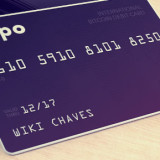Should you pack a prepaid debit card for your next trip?
By Lucy Lazarony
Going on a trip? Here’s a look at the advantages and disadvantages of traveling with a prepaid debit card in your wallet.
An alternative to credit cards. If you don’t have a credit card or don’t want to travel with one, a prepaid debit card may be a good option, according to Robert Firpo-Cappiello, Executive Editor of Budget Travel.
“Traveling with a prepaid debit card is preferable for travelers who do not want to use a credit card,” Firpo-Cappiello says. “Reasons for not using a credit card include a history of racking up charges and high interest (and) already having too many credit cards with high balances or balances at the limit.”
Terry Maher, general counsel for Network Branded Prepaid Card Association, has sent each of his three children on travel adventures with prepaid debit cards. He monitors their spending and their locations online and adds funds as needed.
“A credit card is probably just as convenient but do I want to give a credit card to a 22-year-old or a 20-year-old?” Maher says. “I can check their balances daily online.”
Good for budgeting. A key advantage of traveling with a prepaid debit card is that it forces you to travel on a budget. The amount of money you have to spend on your trip is the amount of money you have loaded on the card, minus any fees you pay for using the card.
“The major upside to traveling with a prepaid debit card is that you’ve established your budget and you have a tool that forces you to stick with it!” Firpo-Cappiello explains.
Unlike a debit card tied to a bank account, with most prepaid cards you don’t have to worry about paying overage charges.
“By using prepaid rather than a card tied to your bank account, you’ll avoid any overage charges,” Firpo-Cappiello says. “But, of course, that means you have to stick to your limit — no wiggle room.”
Ease of use. Prepaid debit cards are accepted at the same merchant locations as credit cards and debit cards tied to bank accounts.
“Because you can use a prepaid debit card at the same places that accept credit and non-prepaid debit cards, it can be ideal for getting the best possible exchange rate and convenience in places, such as on a plane where the only accepted method of payment for snacks and entertainment is plastic,” Firpo-Cappiello advises.
“A good prepaid debit card provider also will offer replacement and emergency cash disbursement as well as the ability to “reload” the card while you’re on the go.”
But there are some key downsides to traveling with a prepaid debit card.
Voluntary consumer protections. Unlike credit cards and debit cards tied to bank accounts, there are no federal consumer protections for lost or stolen prepaid debit cards. If your prepaid debit card is lost or stolen, it’s up to your issuer to reimburse you.
In most cases, if you have registered a prepaid card with the issuer you can recover the full balance when you report a card is lost or stolen, according to Consumer Action.
That’s why it’s so important to register your prepaid card before you travel.
“These cards have to be personalized,” Maher says.
Fees. Another downside to traveling with a prepaid debit card is the fees that you pay for making transactions with the card.
Understanding the fees charged on a prepaid debit card is key to getting the most value out of a prepaid card, Maher advises.
“You need to understand how fees are and be prudent on how you use the card,” Maher says.
For example, how much are fees for using an out-of-network ATM? You’ll save money on ATM fees if you stick to in-network ATMs, whenever you can, when you travel.
“If you’re in the U.S. and you (withdraw cash) at an in-network ATM, you won’t pay a fee at all,” Maher says.
Maher suggests studying a card’s fee structure, including load fees, before signing up for a card.
“Do your homework,” Maher says.
No chip for European travel. Not all prepaid debit cards come with a smart chip, which may be needed for self-serve terminals and preferred by merchants in some European countries.
“A lot of Europe has gone chip and PIN,” Maher explains. “You might want to look for an issuer that offers a chip-based card. So you won’t have trouble using (it) at any merchant.
“If you’re in countries that rely heavily on chip cards, there might be certain transactions you can’t do because it’s not a chip card.”







